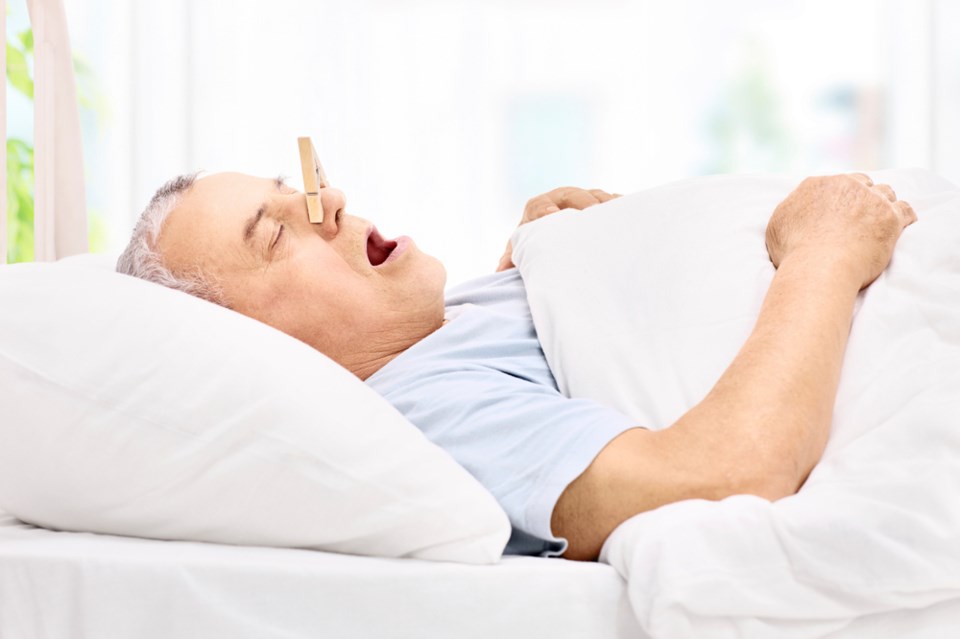So your partner has just suggested that you sleep in the spare bedroom. You know you snore, but you’re pretty sure it’s not that bad. At the same time, you admit to feeling tired in the morning and occasionally wake up with a headache.
Before packing up your favourite pillow and moving to a new bed, consider being tested for sleep apnea.
"Sleep apnea causes you to stop breathing for a short period during sleep," says Paul Sweeney, a Registered Respiratory Therapist (RRT) and President of Coastal Sleep. "This could happen several times during the night. There may be a blockage to your airway caused by Obstructive Sleep Apnea (OSA), which is a loss of muscle tone that keeps the airway open. This results in the tongue and tissue falling back to block the airway."
With OSA, you are woken from a deep-sleep state.
"You feel tired the next day," Paul explains. "But you may not think much of it because many others suffer from the same symptoms. OSA is a very prevalent condition. Unfortunately, around 75 percent of sufferers don't even know that they have it."
Sleep apnea could be the result of a variety of causes, though obesity is the cause most people associate with the condition.
"Certainly if you're obese you're at a higher risk of sleep apnea," Paul says. "But it's by no means the only cause. We treat slim patients who happen to have a really short jaw and therefore a crowded throat. Sleep apnea can also be caused by overly large tonsils or redundant tissue in the throat."
Symptoms of sleep apnea include snoring, interrupted breathing patterns, and even frequent trips to the bathroom at night.
"Considering the symptoms is our starting point," Paul says. "From there, we look at other related issues such as headaches in the morning or a feeling of heartburn. But symptoms are just one part of the puzzle. We also look at existing medical conditions, such as high blood pressure, diabetes, or other heart issues."
Another type of sleep apnea, central sleep apnea, can occur alone or as a result of other medical issues such as stroke, heart failure and narcotic use.
"Central sleep apnea requires a different approach and treatment," says Paul. "Fortunately, it's not very prevalent."
If you think you might be suffering from sleep apnea, talk to your doctor or phone Coastal Sleep.
For more information about the causes and symptoms of sleep apnea call Coastal Sleep at 1.877.241.9066, visit their website or send them an email. There is a Coastal Sleep facility in Vancouver located at 103-511 West 7th Avenue. Coastal Sleep can also be found on Facebook and Twitter.



